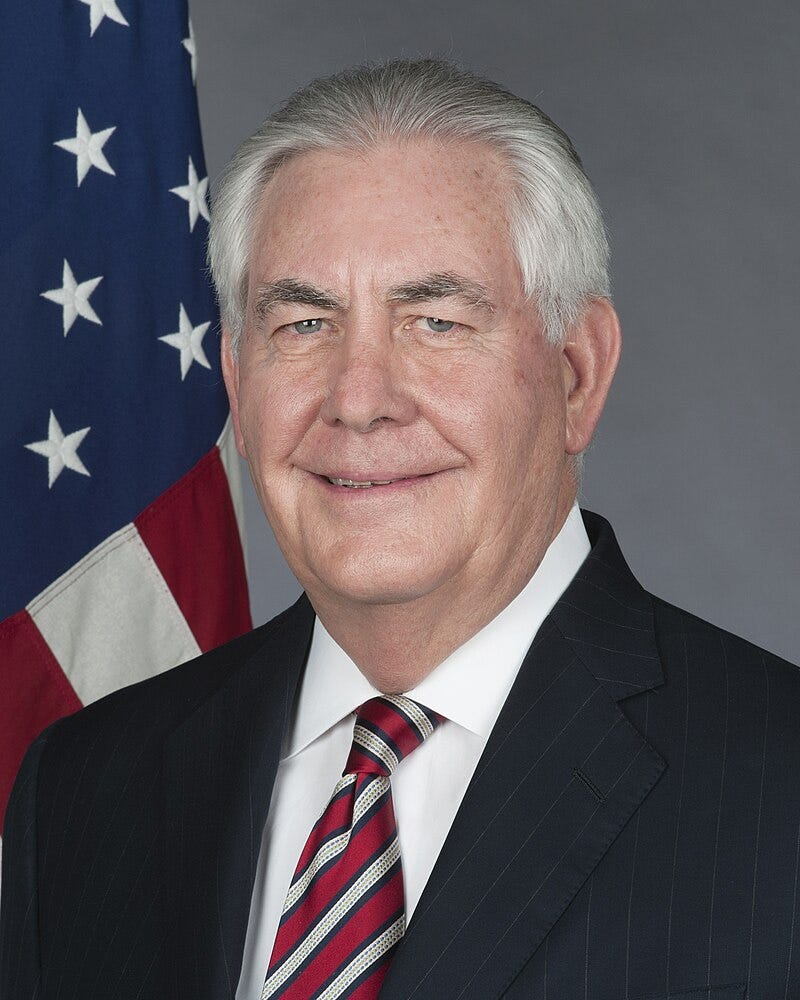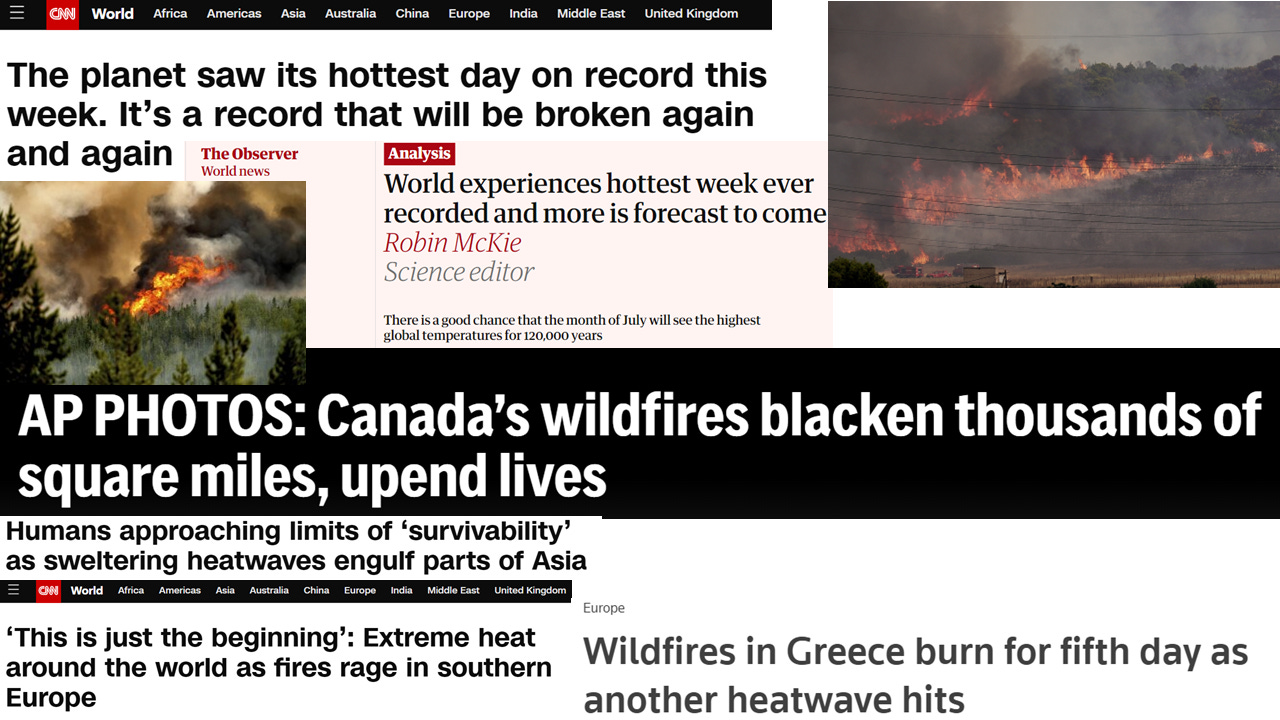Fighting for the Environment in Court
The growing success of climate-related lawsuits
With the abundance of evidence pointing toward increasingly disastrous climate change, it is hard to comprehend the position of those who don’t “believe it’s real.” There are many reasons for holding this view, naïve realism, disinformation, politically motivated reasoning, and climate nihilism, to name a few. Errant beliefs notwithstanding, it seems that the dam holding back the cataclysm is buckling under the strain. Already, numerous leaks have sprung that are literally killing people, from historic heat, megadroughts, and increasingly widespread fires, to water crises, and destruction of ocean ecologies. Despite the hollow optimism of some politicians, it only seems a matter of time before a conflagration erupts encompassing several of these disasters at once. Does the world want to face a pandemic of prehistoric viruses during a megadrought fueled by stifling heatwaves feeding out-of-control fires before real action is taken against the biggest violators? When do we stop prioritizing small-fry solutions like plastic bag bans and start demanding corporate-level changes? It is time to hold the world’s most prolific polluters financially responsible to promote and fund the research and development necessary to stem the rising tides (pun intended) of disaster.
At least one government in the USA has taken steps in exactly this direction, and more are preparing to follow suit. Multnomah County in the US state of Oregon, has filed a lawsuit against Exxon Mobil, Shell, Chevron, the Western States Petroleum Association, and several others for what it calls the “direct and foreseeable consequence” of their actions related to climate change and their history of lying about it. The lies to which the suit refers have to do with Exxon’s internal research, only recently uncovered, that very accurately predicted the damage the industry would do to the climate in future years. Upon reaching these conclusions, Exxon then engaged in a decades-long campaign to discredit the science behind climate change—science that its own researchers confirmed. This campaign was led, for at least part of the time, by its then-CEO Rex Tillerson who called climate models “not competent,” knowing full well that was a lie. Tillerson was among the many failed Cabinet members in the Trump administration.
Exxon’s purveyor of lies, Rex Tillerson
In the US state of Montana, 16 young people filed suit against the state itself alleging that “Montana is violating their constitutional rights to a clean and healthful environment; to seek safety, health, and happiness; and to individual dignity and equal protection of the law.” Among their claims, plaintiffs noted that the “State Energy Policy in Montana... involves systemic authorization, permitting, encouragement, and facilitation of activities promoting fossil fuels and resulting in dangerous levels of GHG (greenhouse gases) emissions, without regard to climate change impacts or the fundamental rights of Youth Plaintiffs and future generations of Montanans.” That case is now awaiting a decision from Judge Kathy Seeley. The advocacy group that brought this suit on behalf of Montana’s youth has also filed suit in Utah, Virginia, Hawaii, and Alaska. Montana’s Assistant Attorney General Michael Russell revealed the general apathy of many in his response to the suit. He said, “Montana’s emissions are simply too minuscule to make any difference. Climate change is a global issue that effectively relegates Montana’s role to that of a spectator.” Russell notably ignored that Montana is home to the entity that produces nearly 40% of American coal—a prolific pollutant. Regardless, Russell seems to imply that the effort to mitigate the situation must be a national or international one only, which is simply unrealistic at this point.
In 2022, youths from Ontario, Canada, sued the government there for unconstitutionally rolling back greenhouse emissions targets. In part, the suit alleged that the failure to attempt to curb emissions was a violation of their rights under the Canadian Charter. Ontario Superior Court judge Marie-Andrée Vermette dismissed the suit on the grounds that the government’s failures “did not rise to the level of violating Section 7 of the Charter of Rights and Freedoms, which guarantees the right to life, liberty and security.” Nevertheless, the judge further wrote that “By not taking steps to reduce GHG in the province further, Ontario is contributing to an increase in the risk of death and in the risks faced by the Applicants and others.” It seems incongruous to state that the Ontario government is “contributing to an increase in the risk of death” while simultaneously claiming that such inaction does not violate a guarantee of “the right to life.” Although that case was dismissed, many more are coming in Canada against a whole host of entities either contributing to, or failing to work to prevent, the negative consequences of systemic pollution and damage to the environment.
Several youth groups in Mexico also sued their government claiming the Electricity Industry Law (aptly abbreviated, “LIE”) violates the constitution there. Among their arguments, the LIE would increase emissions by up to 65% if enacted in its current form. The District Court in Administrative Matters dismissed the case for lack of standing, stating that the plaintiffs needed to prove that their rights were being directly affected, and differently from the rest of society. That they could not prove that, in the view of this Mexican court, meant that as long as the insidious effects of the law affected everyone, no one had standing to sue. Mexico’s Supreme Court affirmed the decision on precisely the same grounds.
Many of the class action suits targeting climate change and its contributors lose on “standing.” Standing essentially means that a litigant must have an interest in a suit and its outcome that allows the litigant to bring the controversy before a court. In some jurisdictions, courts use the vagaries of standing to dismiss cases upon which they have no desire to rule. On the other hand, some courts invoke tortured interpretations of standing to enable them to rule on cases of interest to certain judges. US courts, for example, have been roundly criticized—even by justices themselves—for employing standing in ways that are unpredictable, and sometimes arguably corrupt. Standing in environmental litigation remains a contentious issue, but the case of Massachusetts v. EPA has helped keep the door open. In that case, the US Supreme Court found carbon dioxide to be a pollutant and, more critically, it recognized the possibility of concrete injuries by those and future litigants resultant from climate change.
Similarly to the way lawsuits eventually gutted the tobacco industry in some countries, climate change lawsuits are coming in force against the fossil fuel industry and their subservient enablers in governments. The tea leaves are showing increased reception by courts to allow this kind of litigation to proceed, as evidenced by numerous US appeals courts’ rejection of fossil fuel companies attempts to move state litigation into the US federal system, as well as advancement of cases in several other countries and jurisdictions. It is a travesty that people fighting the chief contributors to climate change are left with little recourse but to file a continued barrage of lawsuits to provoke any meaningful change. Perhaps more problematic is the notion that fighting polluters in court has in some ways become framed as a children’s issue—one not to be taken overly seriously by adults. As Liza Featherstone wrote at the New Republic:
The narrative of climate as a future problem is not only unpersuasive—it’s also outdated and misleading. As anyone who was affected by wildfire smoke or extreme heat this summer can attest, climate change is here now. Even the plaintiffs in Held v. Montana showed this on the stand. The young people mostly did not mourn lost futures, envisioning trouble for their own descendants. Instead, they movingly described the effects of climate change in the present.
If voters put their energies into demanding action on climate issues with the same vigor that they have in other—utterly ludicrous—ventures, children would not have to beg the courts to help stop the world from burning at their feet.
Update 7/29/2023, 8:20pm: Vox reports that there are 2,180 climate-related lawsuits pending around the globe.
Update 8/17/2023, 1:10pm: State judge Judge Kathy Seeley ruled in favor of 16 young people in a lawsuit arguing that the US state of Montana’s oil and gas policies violated the Plaintiffs’ constitutional rights to a safe environment. The judge found that the Montana Republicans’ changes to the Montana Energy Policy Act (MEPA) illegally limited consideration of environmental factors in permitting projects. Judge Seeley pointedly noted “The State did not put forward any evidence of a compelling governmental interest for the MEPA limitation” [Section II(B) line 63]. Read the whole judgment here.
Some have called it the “first major climate litigation victory in the United States.” Deborah A. Sivas of Stanford University said that the direct health protections “embedded in the Montana State Constitution” greatly contributed to the victory. Lisa Benjamin of Lewis & Clark Law School stated, “Simply put, the court said these laws have to change… This case can serve as an important precedent for other states that have similar constitutional provisions.” Until now, lawsuits asserting that climate issues comprise a human or constitutional right have been met with mixed success in the USA compared with other jurisdictions. Much of that may have to do with the derisive attitude toward climate science and issues generally from a certain political sector. Montana’s Attorney General’s spokeswoman exemplified it perfectly in her haughty response to the victory:
[This] legal theory has been thrown out of federal court and courts in more than a dozen states. It should have been here as well, but they found an ideological judge who bent over backward to allow the case to move forward and earn herself a spot in their next documentary.
Those denying the extensive canon of established proof or, lately, their own eyes, have no place in positions of power. If the voters of those states won’t vote them out, at least some courts will step up to adjudicate away their subservience to all the wrong causes. This is a small step in the right direction.
***
I am a Certified Forensic Computer Examiner, Certified Crime Analyst, Certified Fraud Examiner, and Certified Financial Crimes Investigator with a Juris Doctor and a master’s degree in history. I spent 10 years working in the New York State Division of Criminal Justice as Senior Analyst and Investigator. Today, I teach Cybersecurity, Ethical Hacking, and Digital Forensics at Softwarica College of IT and E-Commerce in Nepal. In addition, I offer training on Financial Crime Prevention and Investigation. I was a firefighter before I joined law enforcement and now I currently run a non-profit that uses mobile applications and other technologies to create Early Alert Systems for natural disasters for people living in remote or poor areas.
Find more about me on Instagram, Facebook, Twitter, LinkedIn, or Mastodon. Or visit my EALS Global Foundation’s webpage page here.
Visit the new Evidence Files Facebook and YouTube pages; Like, Follow, Subscribe or Share!
To read about the criminal justice system in the USA, check out this article:






